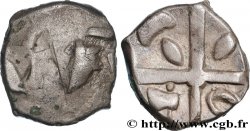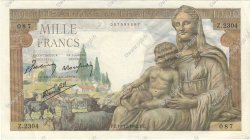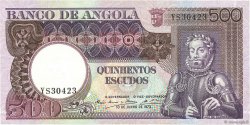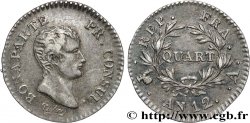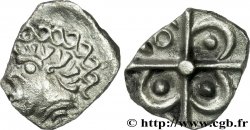Back 1/1
E-auction 302-221265 - bga_520949 - GALLIA - SOUTH WESTERN GAUL - VOLCÆ TECTOSAGES (Area of Toulouse) Drachme “à la tête cubiste”, S. 35, aux haches affrontées
You must signin and be an approved bidder to bid, LOGIN TO BID. Accounts are subject to approval and the approval process takes place within 48 hours. Do not wait until the day a sale closes to register. Clicking on « bid » constitutes acceptance of the terms of use of cgb.fr private e-auctions.
Bids must be placed in whole Euro amounts only. The sale will start closing at the time stated on the item description; any bids received at the site after the closing time will not be executed. Transmission times may vary and bids could be rejected if you wait until the last second. For further information ckeck the E-auctions F.A.Q.
NO BUYER'S FEE.
NO BUYER'S FEE.
| Estimate : | 250 € |
| Price : | 145 € |
| Maximum bid : | 600 € |
| End of the sale : | 28 January 2019 14:06:00 |
| bidders : | 10 bidders |
Type : Drachme “à la tête cubiste”, S. 35, aux haches affrontées
Date: Ier siècle av. J.-C.
Metal : silver
Diameter : 14,5 mm
Orientation dies : 12 h.
Weight : 2,69 g.
Rarity : R2
Coments on the condition:
Centrage intéressant pour ce type quasiment complet des deux cotés ! Jolie patine de collection ancienne
Catalogue references :
Obverse
Obverse legend : ANÉPIGRAPHE.
Obverse description : Tête stylisée à gauche ; calotte frontale hémisphérique proéminente se terminant à sa base par un trait figurant le nez ; joue massive formant avec la mâchoire un bloc rectangulaire dont la seule saillie est le menton ; oreille arrondie et pointée, au centre d'une chevelure abondante et ovoïde au sommet et en mèches parallèles à l'arrière ; deux dauphins opposés devant la bouche.
Reverse
Reverse legend : ANÉPIGRAPHE.
Reverse description : Croix formée de quatre cantons ornés chacun d'une lunule : balle de fronde au 1er canton, une hache au 3e et 4e et un pendant en ellipse au 2e canton.
Commentary
Cet exemplaire a un droit légèrement “mosaïqué”. C’est une caractéristique de ce type aux haches affrontées ; certains avers donnent l’impression d’avoir une multitude de traces incuses sous le portrait. Il est probable qu’il s’agisse d’une série de coin de droit malhabilement gravés, ou réutilisés et regravés !.







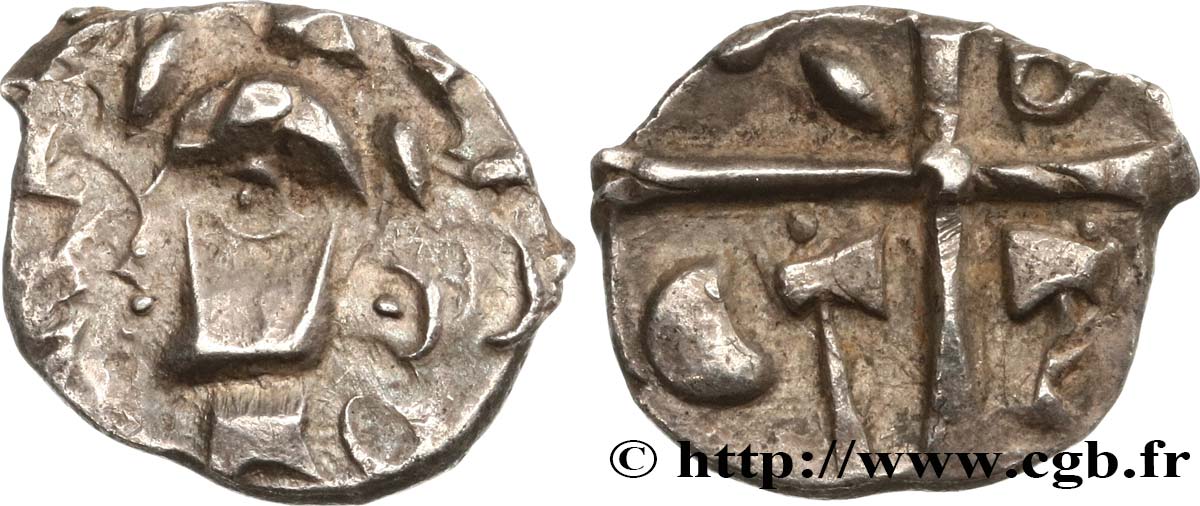
 Report a mistake
Report a mistake Print the page
Print the page Share my selection
Share my selection Ask a question
Ask a question Consign / sell
Consign / sell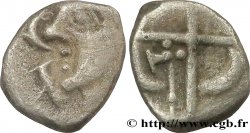
 Full data
Full data


